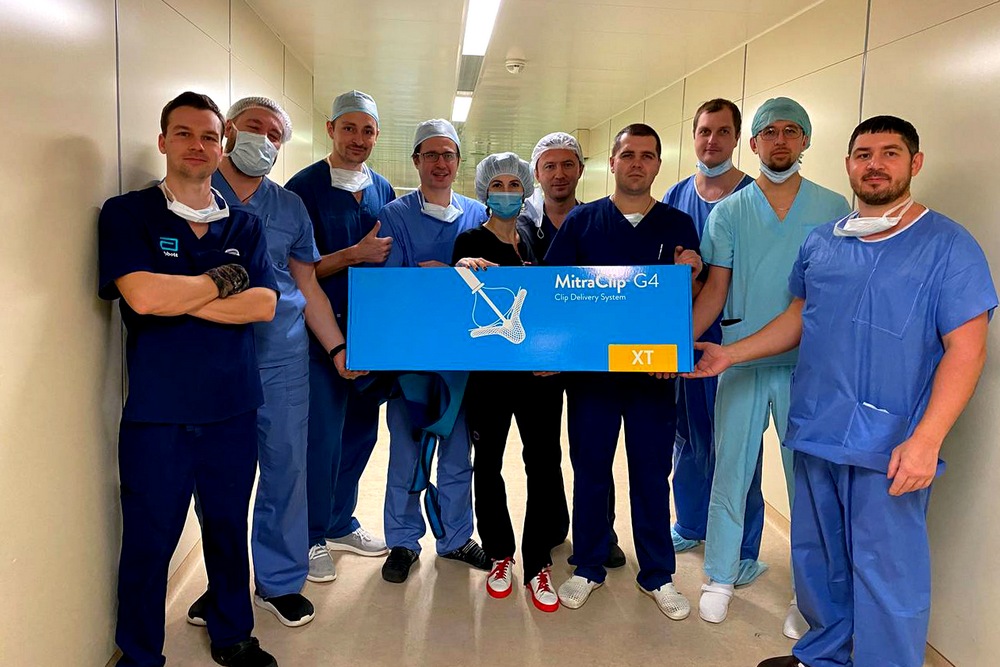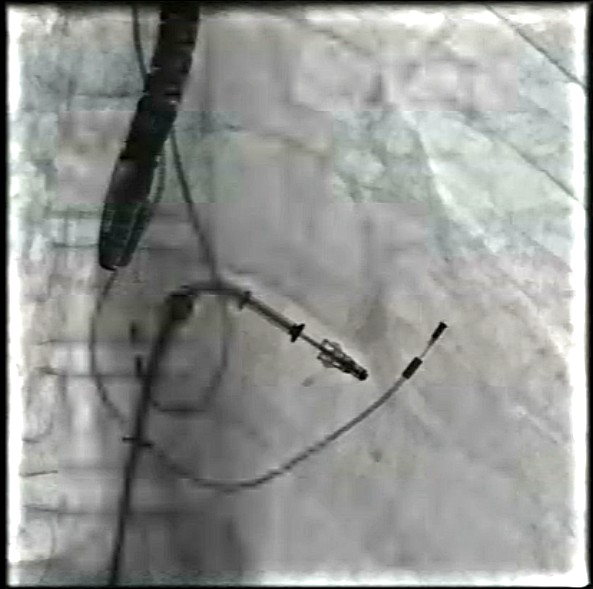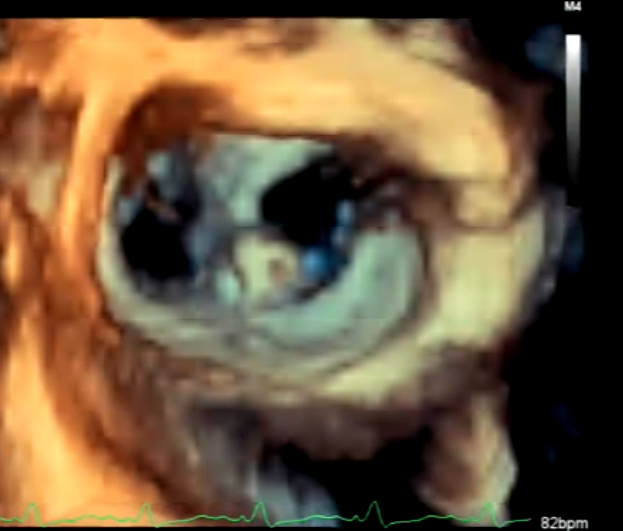
In November, a multidisciplinary team of cardiologists, cardiovascular surgeons and echocardiography specialists selected five patients with severe mitral valve regurgitation who had been denied open heart surgery due to the extremely high risk of perioperative complications and successfully operated on them using the latest MitraClip G4 device under the guidance of Dmitry Zubarev, Chief of the Department for X-ray Surgical Methods of Diagnosis and Treatment.
Mitral valve regurgitation is a condition occurring because of incomplete coaptation of the mitral valve leaflets, thereby allowing backward blood flow into the left atrium. The most common reasons this happens are mitral valve damage associated with the development of primary mitral insufficiency and intrinsic myocardial disease affecting the closing function of the mitral valve due to insufficient contact of the leaflets (secondary mitral insufficiency).
The newest MitraClip technique is based on the Alfieri surgical technique using an implantable clip to join the opposing leaflets of the mitral valve to significantly reduce mitral regurgitation. The entire procedure is performed with transesophageal echocardiography, under twilight anesthesia, and the patient regains consciousness by the time the intervention ends. Full recovery after surgery takes 2 to 5 days.
The MitraClip device used in surgery is approved for use in the USA and Europe, and the total number of implantations in the world exceeds 100,000. The surgical team of Almazov Centre underwent theoretical and practical training for a year to hone the skills of MitraClip implantation on a simulator.
The program of the Russian Ministry of Health for the clinical testing of new treatment methods provides the opportunity to repair severe secondary mitral regurgitation for inoperable patients with this defect.

X ray image of implantation
The indication for endovascular treatment of severe mitral regurgitation is the presence of moderately severe or severe (3-4 grade) secondary mitral regurgitation (no calcification or chord rupture, no signs of mitral valve stenosis) in patients with chronic heart failure of functional class 2-4 with reduced left ventricular ejection fraction, who receive optimal drug therapy and are denied open heart surgery due to the extremely high risk of perioperative complications.
The surgery was performed by the team: D. D. Zubarev, K.N. Malikov, E.L. Urumova, B.A. Urumov, A.A. Prokhorikhin, V.S. Krasnov, A.V. Gorbatykh.

